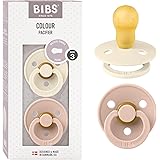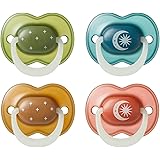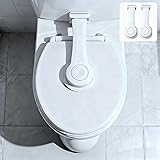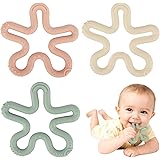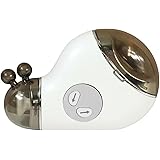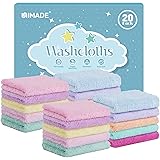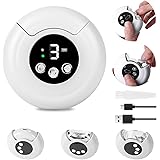When my first baby arrived, I vividly remember standing in the baby aisle at the store, completely overwhelmed. Rows and rows of baby care products stared back at me, each promising to be the “best” for my little one. It felt like a monumental decision, especially when all I wanted was to ensure my newborn’s comfort and safety. This experience is incredibly common for new parents.
The journey of parenthood is filled with countless choices, and understanding the vast world of baby care products is a significant step. While the engaging visuals in the video above might offer a glimpse into the gentle routines of caring for an infant, this article delves deeper. We will explore the essential items every parent needs, along with crucial baby care tips to navigate those precious early months with confidence and ease.
Bathing Essentials: Keeping Baby Clean and Comfortable
Bath time is more than just about cleanliness; it’s a sensory experience that can strengthen the bond between parent and child. Choosing the right bathing products ensures a safe and enjoyable routine. It’s essential to select items specifically formulated for a baby’s delicate skin, which is significantly thinner and more permeable than adult skin, making it more susceptible to irritation.
For newborns, experts often recommend sponge baths until the umbilical cord stump falls off and the area heals, typically around one to two weeks. Once cleared for full baths, a plastic baby tub with a non-slip surface is indispensable for safety. These tubs offer ergonomic support, preventing slips and allowing parents to keep both hands free for washing.
Selecting Gentle Cleansers and Shampoos
When it comes to washing, less is often more. Pediatric dermatologists frequently advise using mild, tear-free, and fragrance-free cleansers. A study published in the journal *Pediatric Dermatology* highlighted that products with added fragrances are a common cause of contact dermatitis in infants. Opt for those labeled “hypoallergenic” and “pH-neutral.” You only need a small amount, roughly a pea-sized drop, to clean your baby effectively.
Similarly, a gentle baby shampoo is crucial for scalp health. Babies can develop cradle cap, a common condition characterized by scaly patches, and a mild shampoo can help manage this. Many parents find success with products containing natural ingredients like chamomile or calendula, which are known for their calming properties. Remember to keep the bath water warm, not hot – around 98.6 to 100 degrees Fahrenheit (37 to 38 degrees Celsius) is ideal, easily checked with a bath thermometer.
Diapering Done Right: Products for Protection and Prevention
Diaper changes are a constant in a baby’s life, happening anywhere from 10 to 12 times a day for newborns. Having the right baby care products on hand makes this routine efficient and hygienic. A well-stocked changing station is fundamental for quick and clean changes, minimizing discomfort for your little one.
The primary items for diapering include a comfortable changing pad, preferably with safety straps, and an ample supply of diapers. Parents can choose between disposable and cloth diapers, each offering distinct benefits. Disposable diapers are convenient and highly absorbent, while cloth diapers are often more environmentally friendly and can be cost-effective long-term.
Combatting Diaper Rash with Effective Creams
Diaper rash is a prevalent concern, with estimates suggesting that 50-60% of babies experience it at some point, often between 9 and 12 months. A high-quality diaper rash cream is therefore a non-negotiable item. Look for creams containing zinc oxide or petrolatum, both known for creating a protective barrier against moisture.
Zinc oxide, typically found in concentrations of 10% to 40%, actively works to soothe inflamed skin and prevent further irritation. Apply a thick layer at every diaper change, especially overnight, to maintain skin integrity. Additionally, choosing gentle, alcohol-free baby wipes is crucial. Some parents even opt for cotton balls and warm water for newborns or babies with highly sensitive skin, further reducing exposure to potential irritants.
Nourishing Baby’s Delicate Skin: Lotions and Oils
A baby’s skin requires consistent moisture and protection to stay soft and healthy. Beyond bathing and diapering, incorporating lotions and oils into your daily baby care routine can prevent dryness and maintain the skin’s natural barrier. This is especially important during colder months or in dry climates, where skin can easily become chapped.
After a bath, a gentle massage with baby lotion can be a calming ritual, promoting relaxation and better sleep. Studies indicate that infant massage can lead to reduced crying and improved weight gain in preterm infants. Choose lotions that are specifically designed for babies, free of parabens, phthalates, and harsh chemicals. Brands that are endorsed by dermatologists and pediatricians often provide excellent choices.
The Benefits of Natural Oils for Baby Skin
Natural oils can also be incredibly beneficial for baby skin. Cold-pressed oils like almond oil, coconut oil, or jojoba oil are popular choices. These oils are rich in vitamins and essential fatty acids, providing deep hydration without clogging pores. Many parents use these oils for infant massage, which not only moisturizes but also stimulates circulation and promotes sensory development.
However, it is always wise to perform a patch test on a small area of your baby’s skin before widespread application to check for any allergic reactions. For babies prone to eczema, a condition affecting approximately 10-20% of infants, thicker emollients or specific barrier repair creams recommended by a pediatrician are often more effective. Consistent use of appropriate baby care products helps maintain skin health and comfort.
Health and Safety First: Essential Baby Care Products
Ensuring a baby’s health and safety is paramount, and certain baby care products are indispensable for this purpose. These items provide parents with the tools to monitor their baby’s well-being and respond effectively to minor health concerns. It’s wise to assemble a basic first-aid kit specifically for your infant well before their arrival.
A reliable baby thermometer is perhaps the most critical item. While there are various types, including rectal, temporal, and ear thermometers, a rectal thermometer is generally recommended for infants due to its accuracy for core body temperature readings. Always consult your pediatrician regarding fever guidelines and when to seek medical attention.
Beyond the Thermometer: Grooming and Safety Tools
Nail care for infants might seem minor, but it’s crucial to prevent accidental scratches. Baby nail clippers or small, blunt-ended scissors are designed for tiny fingers and toes. Many parents also find a soft-bristled baby brush helpful for styling hair and gently managing cradle cap. These tools are often included in comprehensive baby care kits, ensuring you have everything you need.
For general safety, a nasal aspirator helps clear stuffy noses, making breathing and feeding easier for babies, especially during cold season. Additionally, a humidifier in the nursery can provide significant relief for congestion or dry skin. Investing in these fundamental baby care products means you are well-prepared for common infant health needs, providing peace of mind as a parent.
On-the-Go Care: Travel-Friendly Essentials
Life with a baby doesn’t mean staying confined to the home; parents often need to venture out for appointments, errands, or simply for a change of scenery. Having a well-packed diaper bag with essential baby care products makes these outings much smoother and less stressful. Preparation is key to ensuring your baby remains comfortable and happy, no matter where you are.
A fully stocked diaper bag should include more than just diapers. Pack a portable changing pad, which often folds up compactly, providing a clean surface wherever you need it. Travel-sized packs of baby wipes are also invaluable, not just for diaper changes but also for quick clean-ups of spills and sticky hands. It’s always a good idea to pack more wipes than you think you’ll need.
Emergency Supplies and Comfort Items
Beyond hygiene, consider items for comfort and unexpected situations. Include a small tube of diaper rash cream, an extra change of clothes for the baby (and perhaps a spare shirt for yourself!), and a small toy or pacifier to keep your baby entertained or soothed. A burp cloth or two can also be very useful for feeding or spit-up incidents.
For longer outings, don’t forget snacks if your baby is eating solids, along with a bottle of water for older infants. A small first-aid kit containing essentials like band-aids (for older siblings or yourself), antiseptic wipes, and any necessary medications ensures you’re ready for minor mishaps. Being prepared with these portable baby care products allows you to enjoy your outings without constant worry.
Making Informed Choices: What to Look For in Baby Products
Navigating the sheer volume of baby care products on the market can feel daunting, but understanding what to look for simplifies the process. The core principle revolves around safety, gentleness, and effectiveness, especially considering a baby’s delicate and developing system. Always prioritize products that minimize exposure to harsh chemicals and potential allergens.
One of the most important considerations is the ingredient list. Experts recommend avoiding products containing parabens, phthalates, sulfates, and artificial fragrances. These chemicals have been linked to various health concerns, including skin irritation and potential hormonal disruption. A transparent ingredient list indicates a brand’s commitment to safety and quality.
Certifications and Pediatrician Recommendations
Look for products that carry certifications from reputable organizations, such as those indicating “dermatologist tested” or “pediatrician recommended.” While not mandatory, these seals can offer an extra layer of assurance regarding a product’s safety and suitability for infants. Many brands now highlight their commitment to natural or organic ingredients, appealing to parents seeking a more holistic approach to baby care.
Finally, always remember that every baby is unique. What works wonderfully for one might not be ideal for another. If your baby develops any irritation, rash, or discomfort after using a new product, discontinue use immediately and consult your pediatrician. Choosing the best baby care products is an ongoing process of learning and adapting to your baby’s specific needs, ensuring their comfort and well-being every step of the way.
Your Baby Care Q&A: Product Insights & Parenting Wisdom
When can I give my newborn a full bath?
Experts recommend sponge baths until your baby’s umbilical cord stump falls off and heals, which is usually around one to two weeks after birth.
What type of cleansers and shampoos are best for a baby’s bath?
Opt for mild, tear-free, and fragrance-free cleansers and shampoos that are labeled “hypoallergenic” and “pH-neutral” to protect your baby’s delicate skin.
How often should I change my newborn’s diaper?
Newborns typically need frequent diaper changes, usually around 10 to 12 times a day, to ensure cleanliness and comfort.
What ingredients should I look for in a diaper rash cream?
Choose diaper rash creams that contain zinc oxide or petrolatum, as these ingredients help create a protective barrier against moisture and soothe irritated skin.
What are some essential health and safety products for a baby?
Key items include a reliable baby thermometer, baby nail clippers or scissors to prevent scratches, and a nasal aspirator to clear stuffy noses.


